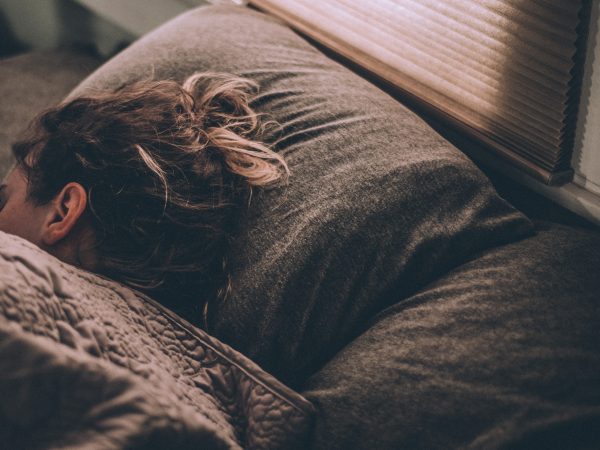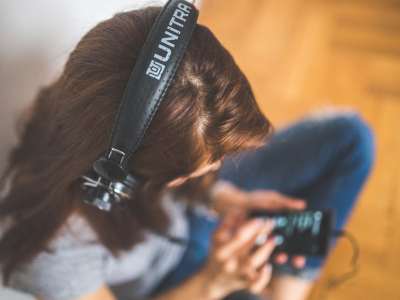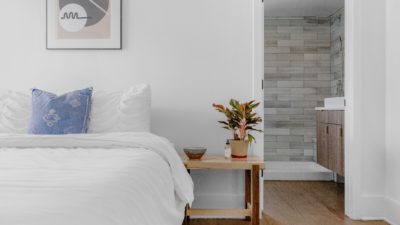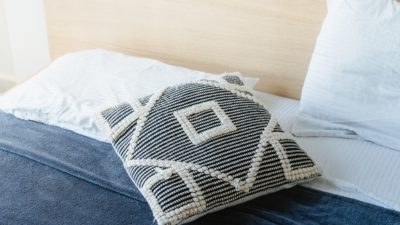Most people probably know from experience that your sleep position can affect how your body feels during the day. However, how you sleep can reveal a lot about your personality traits as well.
While sleep style isn’t an exact science, body language experts have done research on the most common sleeping positions and how they relate to you.
Sleep Positions & Personality Traits
Our bodies are incredible because they’re continually trying to communicate with us, even in our sleep. Researchers have found that often, there is a link between your favorite sleeping position and your personality or behavior.
Some analysis into this research coupled with the psychological analysis suggests that side sleeping aligns with a more easy-going attitude, while someone who sleeps on their back appreciates more rigidity in their life. Some say, for example, that stomach sleepers could be seen as risk-takers.
However, you should take all of this with a grain of salt. As we said, deriving meaning out of the way you sleep is a tenuous practice from a scientific perspective.
Everybody has to sleep, right? If we say most people sleep on their sides, does that mean most people are easy going? Maybe you learned to sleep on your back because you had shoulder pain from side sleeping.
But, looking for meaning in the potentially meaningless is fun. So we’re going to dive in and give our best guess about the hidden meanings of sleep positions based on our research and mattress expertise.
Back Sleepers Meaning
People who sleep are their backs are generally reliable, structured people who hold high expectations for themselves and others. These high standards directly translate in their preferred sleeping position, since back sleeping is the best position for lower back and spine support. One of the drawbacks of sleeping on your back is that back sleepers are more likely to be snorers.
If you sleep in one of the following positions, you fall under this category.
Soldier Position
If you sleep in soldier position, you’re on your back with your legs straight and your hands down at your sides. Soldier sleepers keep their necks and backs in alignment and are less likely to experience back pain. Soldier sleepers seem to move toward structure and discipline.
Starfish Position
Starfish sleepers are one of a kind, lying with their legs outstretched and their hands up over their heads, potentially indicating their open personalities. Sleeping in a starfish position is an ideal choice for people with acid reflux, but not for those who experience sleep apnea.
On Your Back with Neck or Knee Support
If you sleep on your back but still find you need a little extra support, you probably use something for extra support. Some people place pillows under their legs for lumbar relief, others put one under their lower back or under their head to reduce neck pain.
We’re going to go out on a limb and say these people are downright practical – they should check out the Helix wedge pillow for even better support.
Side Sleepers
Side sleeping is one of the most popular sleep styles. According to sleep specialist Dr. Chris Idzikowski, people who favor this sleep position are usually quick to trust and open to new experiences.
Side sleepers keep their spines in a neutral position, and their airwaves open, making it the best position for people with lower back pain or sleep apnea. Sleeping on your right side can irritate heartburn while switching to your left side can relieve it.
The following are positions that all fall under the side sleeping category.
Log Position
Log sleepers sleep on their side with their arms tucked in towards their torso. Sleeping like a log keeps your spine in a neutral position and can be made even more comfortable by placing a pillow between your knees for extra support.
Fetal Position
People who sleep in the fetal position curl up on their side with their knees coming in towards their chest. This position gives sleepers a feeling of innocence and security while restoring the natural curvature of the spine.
Yearner
The “yearning dreamer,” as this position is sometimes known, is when you sleep on your side with your arms reaching out in front of you. Yearners can be welcoming, open-minded people.
Stomach Sleepers
Stomach sleepers tend to take up the most space when they sleep and therefore can be said to have big, fun personalities and to gravitate towards adventure.
If you sleep on your stomach, you might need to take extra measures against neck pain and back pain, since stomach sleeping puts extra pressure on those areas. An adjustable pillow and a supportive mattress are key for stomach sleepers. Stomach sleeping is highly efficient at reducing snoring and sleep apnea.
Freefall
Freefallers, as their name might suggest, are thrill-seekers. People who sleep in the freefall position sleep on their stomach with their head turned to one side, often clutching a pillow. This position runs the greatest risk of neck pain.
Facedown
Sleeping facedown looks very much like sleeping in the freefaller position, except you keep your neck straight and facedown on your pillow. A wedge pillow would come in handy to rest your forehead on so you can breathe easily.
Propped With A Pillow
Another way to use a pillow to support you if you are a stomach sleeper is to settle in for the night with a pillow directly under your stomach. This action restores some of the natural curves of the spine and can prevent back pain.
Combination Sleepers
Many people tend to toss and turn over the night. They’re known as combination sleepers or freestylers. People who combine multiple sleep positions tend to have better circulation thanks to their constant movement throughout the night.
Like any other style of sleeper, combination sleepers should choose a mattress that will support their unique needs.
How Can Helix Help You Get Your Best Night’s Sleep?
It’s so important to have a mattress and a pillow that will support you through the night, no matter what sleep position you favor or what that might say about your personality.
Helix makes it super easy to find the best mattress for your unique sleep style. All you have to do is take the short sleep quiz, and Helix will be able to recommend the perfect mattress for you, no matter who you are or how you sleep.















